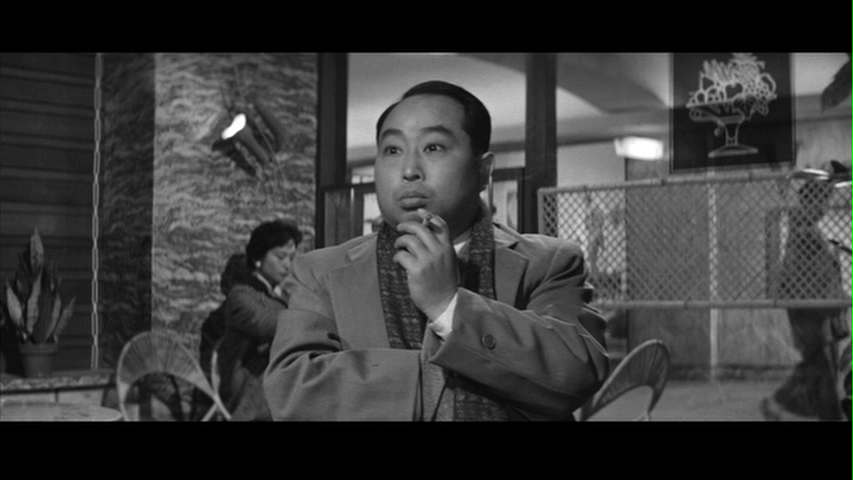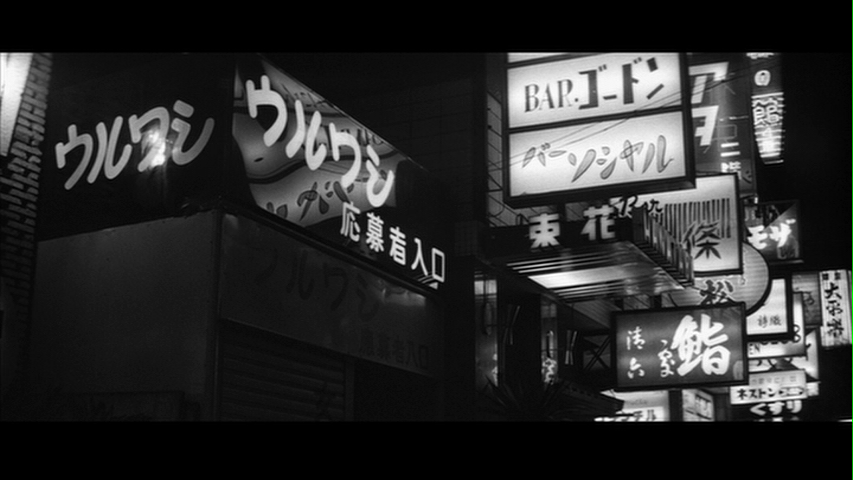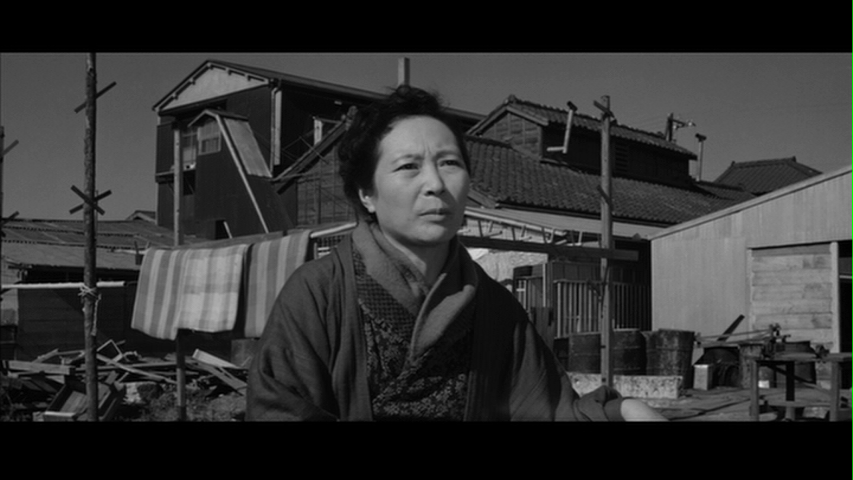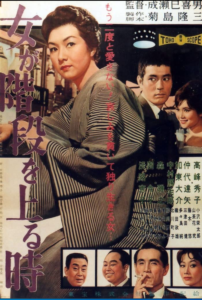|
Genres, Themes, Actors, and Directors:
- Character Studies
- Feminism and Women’s Issues
- Japanese Films
- Survival
- Widows and Widowers
Review:
Only two of little-known Japanese director Mikio Naruse’s films (Late Chrysanthemums [1954] and Floating Clouds [1955]) are listed in Peary’s book, but this later Naruse movie remains must-see viewing as well. Widowed Keiko (Takamine) — approaching thirty (!) — is stuck in a dead-end job with little chance to move “up”. While in the midst of seriously considering opening her own bar, she witnesses her “rival” trying the same thing and failing miserably — and, though a married male suitor is willing to loan Keiko money in return for “favors”, Keiko refuses to compromise herself. Having made a vow of lifelong loyalty to her dead husband, she’s remained celibate since his death, and is unable to act upon her desire for romance (or sex) without guilt; when she finally does give in to men’s solicitations (twice), she’s badly burnt both times. Despite its decidedly grim storyline, however, When a Woman… remains eminently watchable, thanks in large part to Takamine’s sensitive portrayal as Keiko: she manages to exude both integrity and vulnerability at once, making us believe she’ll be alright despite the odds against her.
Note: When a Woman… evokes Mizoguchi’s post-war work — particularly A Geisha (1953) and Street of Shame (1955) — but with a decidedly “jazzy” twist, thanks to Toshiro Mayuzumi’s xylophone-heavy score and Satoshi Chuko’s “modern” interiors.
Redeeming Qualities and Moments:
- Hideko Takamine as Keiko

- Masayuki Mori as Keiko’s married love interest

- Tatsuya Nakadai as Kenichi Komatsu

- Daisuke Kato as Keiko’s roly-poly suitor

- Masao Tamai’s gorgeous b&w cinematography

- A devastating look at female survival in a patriarchal society

- Toshiro Mayuzumi’s jazzy score
Must See?
Yes. This unsung masterpiece should definitely be seen by all film fanatics.
Categories
- Foreign Gem
- Important Director
Links:
|







One thought on “When a Woman Ascends the Stairs (1960)”
A must-see classic: superb. Lyrical, poetic, and haunting, it is also tough, cynical and somber – without being an out-and-out downer. Fascinating mix.
I first saw it on educational television (ch. 13) in New York City, shortly after I moved there in the late ’70s. It was one of those rare stay-at-home nights (since my roommates and I were always either working or doing theater) in the pre-VHS days, when you were kind of lucky if a good movie was being shown on tv. My friend Denise and I decided to watch, were mesmerized, and talked at length about it after.
Later, when I lived in Japan, I discovered that tv programmers there revered the greats like Naruse, Ozu, Mizoguchi, Kurosawa, etc., enough to show a wide range of their films regularly. As well, films were then available on video and retrospectives were fairly common (esp. at one very memorable revival house in Ikebukuro).
One way or the other, I managed to see quite a few Naruse films – so, yes, it is unfortunate that they have not traveled to the States with anything near the regularity of Naruse’s contemporaries.
The Criterion DVD release of ‘WAWATS’ contains (along with an informative interview with ‘WAWATS’ co-star Tatsuya Nakadai) a marvelous commentary by author/film critic Donald Richie, in which he explains some of the reasons why Naruse’s films had such difficulty finding American distribution. He imparts, for example, that Naruse’s concept of “a woman’s picture” differed greatly from the overtly melodramatic kind that would star Joan Crawford and that, even though his heroines were strong and able to endure anything, his films did not ‘translate’ well in their day due to subtlety and a perceived lack of action. (Odd, since the same can be said of Ozu – although his films are often marked by an optimism Naruse lacks. Richie quotes Naruse: “I’ve always felt that the world we live in betrays us.” Ozu appeared to briefly share that sentiment in his 1957 film ‘Tokyo Twilight’, which bombed famously in his native land – so he later refrained from that kind of harsh social criticism. NOTE: I greatly admire ‘Tokyo Twilight’ and it has recently received a Criterion DVD release.)
As Richie also points out, ‘WAWATS’ (written by Ryuzo Kikushima, who penned many Kurosawa films) is all about money. Money is openly used in the film often, is talked about constantly and we come to see how people are slaves to it. The film is also about how life can throw roadblocks in your way (esp. when they’re tossed in by those who trick you or do not reveal their true selves), and how you choose to deal with that. The film is now 50 years old and, as Nakadai states, it feels as fresh as when it was made. The cast is uniformly excellent (I esp. like Reiko Dan as feisty Junko) and the ever-dependable lead actress Hideko Takamine is remarkable.
Though ostensibly about a certain kind of Japanese woman, the film couldn’t be more universal.